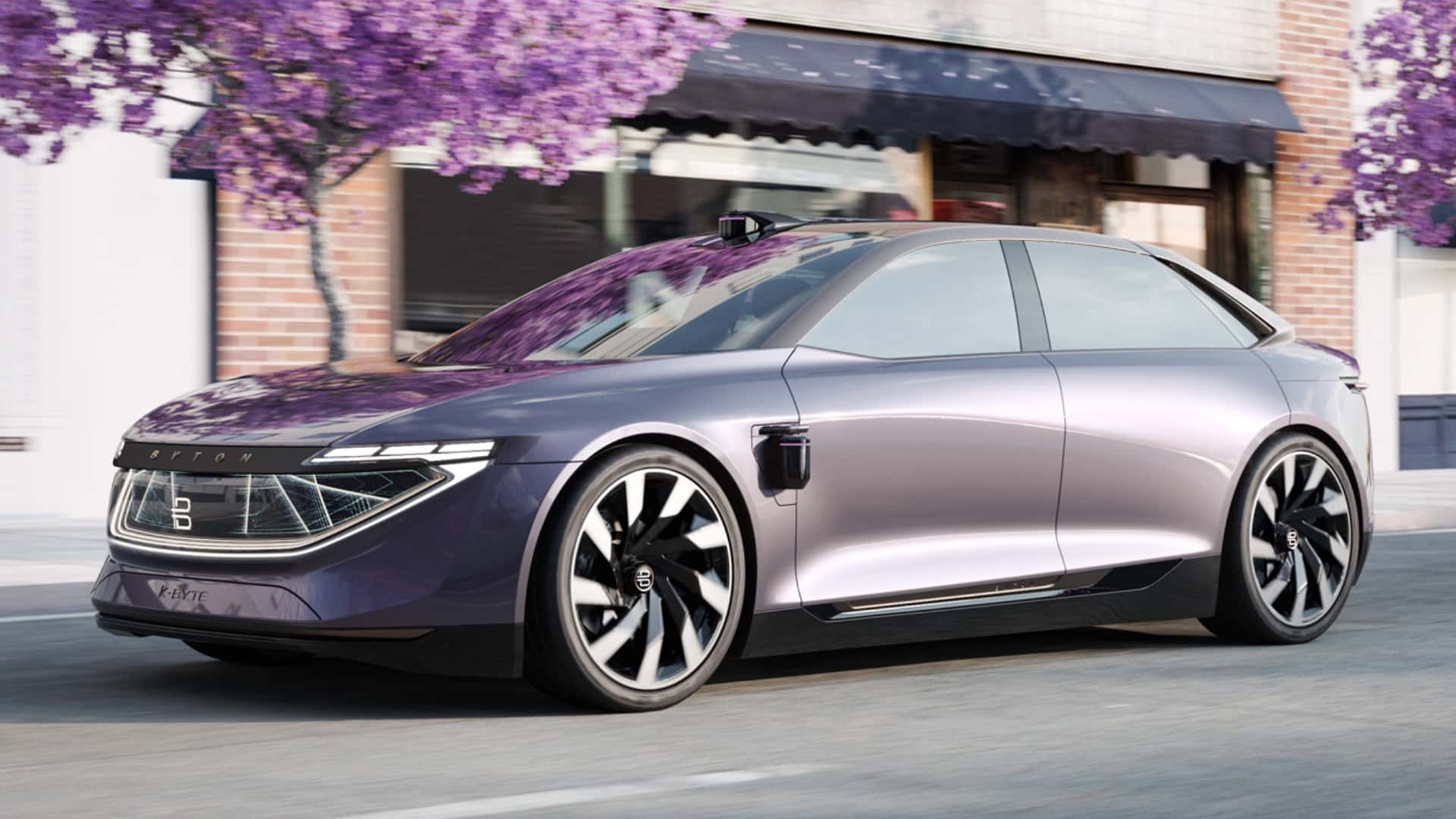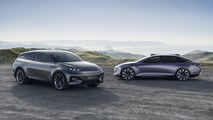
- The Byton K-Byte was the second car planned from Chinese EV startup Byton.
- Byton went bankrupt in 2023, with no cars ever reaching public sale.
- Two K-Byte concept models have been spotted in Northern California.
China's auto sector may be under fire for having too many car brands serving not enough buyers, but that sort of madness happened here in the U.S., too.
Let's flash back to about a decade ago, or even a little before that. Tesla’s dominance wasn’t quite assured yet. The Model S and Model X were cool, but many assumed the Model 3—and anything beyond it—would be vaporware. If the future was electric, it could be anybody's game. Venture capitalists, disgruntled or bored auto engineers in search of new pastures and science geeks sometimes came together to figure out just how they were going to create an EV that’s gonna change the world.
And from that mixture of personalities and money came some pretty interesting things. Like, do you remember Coda? Or SF Motors? Or Fisker, the first time?
Perhaps you remember Byton—another Silicon Valley startup that failed right at the finish line. This would-be automaker had plans for at least two models. Its first model would have been the Audi Q8 E-Tron-sized M-Byte, with the K-byte made to challenge the Tesla Model S.
True, Byton was effectively Chinese, but it had an American HQ and a lot of talent and employees from outside of China. And that was well before the Chinese auto industry was as established as it is now, and before trade and political tensions with the U.S. reached a boiling point.
Back then, Byton aimed to launch here while also launching in China; it had even already secured distribution licenses in California. The brand also filed a patent for a three-seat EV with sliding doors, but not much was ever shown outside of the patent drawing.

Unfortunately, the brand ran out of money and went bankrupt before the M-Byte could enter series production and distribution outside of a handful of preproduction units. Its main production partner, Foxconn, declined to pick up the torch, and no other Chinese EV company was interested in the intellectual property. Byton furloughed half of its U.S. staff in 2020, then remained a dead man walking until it failed for good in 2023.
Gallery: Byton K-Byte Concept





But weirdly enough, examples of the K-Byte sedan concept still exist.
For the past two years or so, the pictures of the two K-Byte concepts have been spotted in public somewhere in the Bay Area. But these recent pics from a few weeks ago, seen on Reddit's r/spotted, show that these things are looking a bit worse for wear.
The two K-Byte sedans are coated in dust and have bird poop on them. The exterior paint looks like it’s lost a lot of luster.
Now, I should be clear that these K-Byte sedans weren’t ever running and driving prototypes. I talked to an ex-Byton employee to figure out the story behind these things, and they said these are likely either a non-moving styling buck or a "roller"—essentially a big remote control car that could roll itself onto vehicle display turntables or stages.
It likely doesn’t have all of the production-level running gear to get it on the stage. The nearly opaque glass suggests that these bodies likely do not have interiors, although the internet says there’s at least one unit that did exist with an interior.
Today, Byton is barely a footnote in EV history. But it was ahead of its time, too.
The M-Byte and K-Byte both featured full-width screens; back then, it seemed kind of gaudy, but it’s not super uncommon to see this trend implemented on production cars today, like the Afeela or even the gas-powered Lincoln Nautilus. The steering wheel screen is weird, but brands like Li Auto have screens on the steering wheel, albeit not so large and obnoxiously mounted.

These rotting prototypes make me wonder of a world that saw Byton get on the road would be like. Would it have opened the door for more Chinese vehicles on U.S. roads? Would Tesla have been as prevalent a force in the EV world as it is now? Would we be driving M-Byte crossovers and K-Byte sedans instead of the Lucid Air or Tesla Model S?
Or was Byton always destined to fail, since thus far, Foxconn’s EV efforts in the U.S. have only resulted in stalled expectations and broken promises? After all, even if Byton had some kind of Polestar-type launch, it would've faced anti-China tariffs anyway.
I guess we’ll never know. Pour one out for Byton.
Contact the author: Kevin.Williams@insideevs.com







